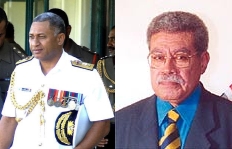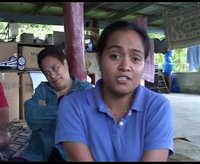
The Internet Governance Forum (IGF) is rapping up in Athens right now. One topic on the IGF agenda that should be on the minds of Pacific Islanders who value their freedom of speech and ability to express their embattled cultures online is the trend away from freedom of expression on the Internet.
This threat comes primarily in two forms, one is passive and systemic and the other is the result of active suppression. The passive threat is inherent in the technology and governance structure of the Internet and comes primarily in the form of English-centred technological standards and US-centred Internet governance structures, particularly in terms of ICANN. The active threat comes from governments, and even private interests, practicing censorship against their own citizens online.
UNESCO, a frequent patron of a variety of projects in the Pacific, ran three workshops addressing these and related issues at the IGF. Warning, the following quote contains copious NGO jargon.
On 31 October, UNESCO’s workshop, Towards a multilingual global Internet: Avoiding the risk of fragmentation (co-organized with the Internet Corporation for Assigned Names and Numbers, ICANN, and the National Telecommunication Regulatory Authority of Egypt), will focus on efforts to ensure that the internet remains open and global, while allowing for the use of different scripts, notably in the creation of domain names in non-Latin languages. The issue is becoming ever more crucial with the increasing quantity of content in non-Latin scripts on the internet. The consequent need to use non-Latin scripts in naming websites must be reconciled with the need to maintain seamless communication across all parts of cyberspace to avoid breaking up cyberspace into disparate, incompatible script-based networks.
Also on 31 October, UNESCO and the Internet Governance Project (IGP), an interdisciplinary consortium of academics with expertise in international governance, internet policy, and information and communication technology (ICT), will organize the workshop on Content Filtering and Freedom of Expression. The event will bring together representatives of freedom of expression advocacy groups, academics and stakeholders such as internet service and equipment providers from different parts of the world. They will examine governmental content regulations, both through legislation and technical barriers such as filters. Participants will also explore ways for countries with different legal understandings of acceptable content to reconcile their differences while maximizing freedom.
On 1 November, the workshop on Openness in Cyberspace: The Challenges of Freedom of Expression will seek to define ways to ensure the free flow of information in an open and transparent internet. Issues to be examined will include: how to develop inclusive, participatory and open models in cyberspace; regulatory mechanisms on the national and international levels; reinforcing reliability of the internet; protecting privacy and individual rights; and promoting the openness that is indispensable for the creation of inclusive knowledge societies.
[UNESCO to address risks of internet fragmentation and freedom of expression in cyberspace at Internet Governance Forum, October 27, 2006, UNESCO Portal.]
The public dialogue on these subjects needs to begin in Fiji and other South Pacific nations. Let us not allow others to set our fate.
Note on author's short term bias: I am currently in the Cook Islands working on a challenging library technology project that is sponsored by UNESCO.



